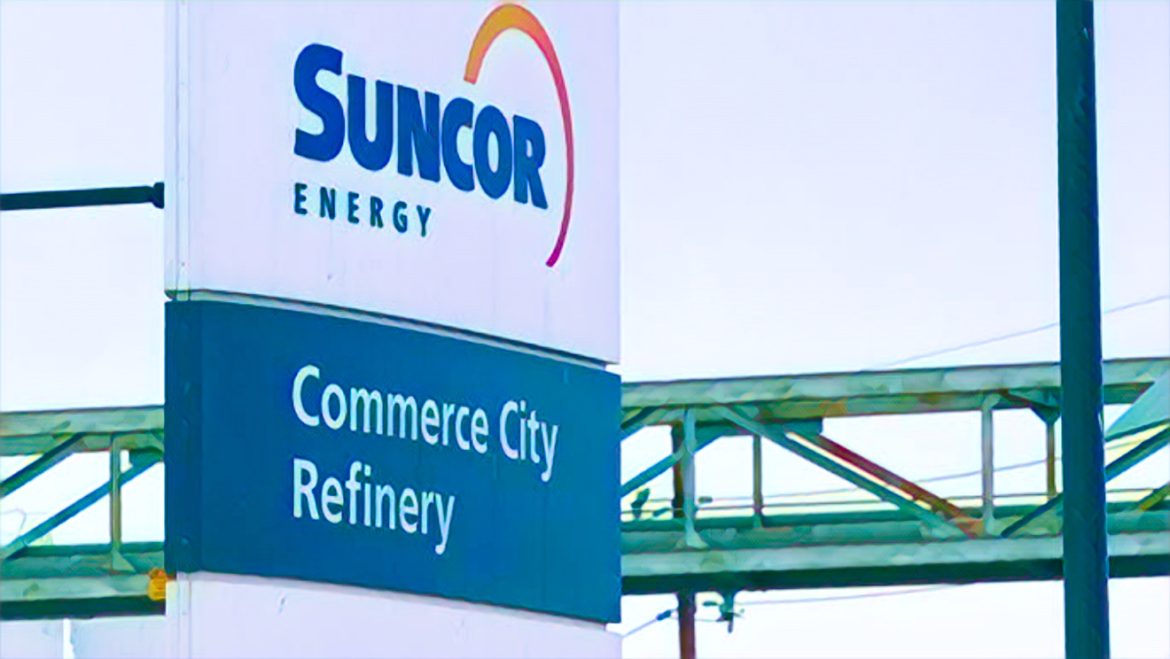KEY POINTS
- Canadian oil producers plan a significant production boost in 2025.
- Trans Mountain pipeline increases export capacity and price leverage.
- Major investments aim to support output growth and market expansion.
Three of Canada’s leading oil producers—Suncor Energy, Cenovus Energy, and Imperial Oil—are setting their sights on increased production in 2025. This move comes amid strong demand for Canadian crude in both U.S. and international markets.
Suncor, headquartered in Calgary, has projected a production boost of 4.4% next year, with output expected to range from 810,000 to 840,000 barrels per day (bpd). The increase is seen as a continuation of the company’s upward production trend, as it is on track to exceed its 2024 guidance of 770,000 to 810,000 bpd.
BMO Capital Markets Analyst Randy Ollenberger noted Suncor’s potential to outperform its forecast, stating that the company is well-positioned to beat its 2024 production target, raising the possibility of surpassing its 2025 estimates.
Cenovus Energy is also forecasting a 4.4 percent rise in production, driven by the start-up of its Narrows Lake oil sands project. Its 2025 crude output is expected to range from 805,000 to 845,000 barrels of oil equivalent per day (boe/d).
Imperial Oil, which is majority-owned by Exxon Mobil, projects a 3.1 percent increase in its 2025 production. CEO Brad Corson explained that the company’s increased capital spending, set at C$1.9 billion to C$2.1 billion, is linked to multi-year projects and new drilling opportunities at its Cold Lake oil sands project.
Trans Mountain pipeline expansion boosts Canadian oil prices
Canadian oil producers are reaping the benefits of the Trans Mountain pipeline expansion, which significantly enhanced market access for Alberta’s crude. The expansion, launched earlier this year, has tripled the capacity of oil flow from Alberta to Canada’s Pacific Coast, providing access to more lucrative markets in Asia and the U.S. West Coast.
According to Reuters, the increased capacity has driven up the price of Western Canadian Select (WCS), a key benchmark for Canadian crude. By reducing reliance on U.S. Gulf Coast refineries, Canadian producers now have diversified buyers, resulting in stronger price leverage.
With the Trans Mountain pipeline in full operation, producers like Suncor, Cenovus, and Imperial have greater opportunities to capitalize on higher global prices. It has also allowed Canada’s crude to compete on a global stage with Middle Eastern and U.S. Gulf Coast exports.
Market analysts believe that the improved export capacity will play a pivotal role in supporting production growth, as it provides Canadian oil companies with enhanced revenue potential and reduces bottlenecks in Alberta’s oil sands production.
Capital investments increase as producers prepare for 2025 growth
As Canadian oil producers prepare for an increase in output, they are also boosting capital investments to support production growth. Suncor plans to spend between C$6.1 billion and C$6.3 billion in 2025, representing a 3 percent decrease from 2024, as the company seeks greater operational efficiency.
Meanwhile, Imperial Oil has raised its 2024 capital expenditure by 9 percent to C$1.85 billion, with further plans to increase its 2025 spending to between C$1.9 billion and C$2.1 billion. CEO Brad Corson noted that the rise in spending was due to ongoing multi-year projects and expanded drilling at the company’s Cold Lake oil sands operation.
Cenovus Energy, on the other hand, plans to keep its 2025 capital spending in line with 2024 levels. The company is focused on ensuring steady production growth without overextending its capital commitments.
Market analysts expect these investments to enhance production efficiency, reduce operational bottlenecks, and support long-term revenue growth for Canada’s leading oil companies.



